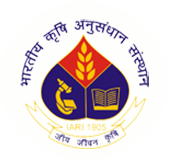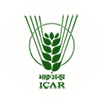Crop stress management and global climate change / edited by José Luis Araus, International Maize and Wheat Improvement Center (CIMMYT), Mexico and Gustavo Ariel Slafer, University of Lleida, Spain.
Material type: TextSeries: CABI climate change series ; 2.Publisher: Wallingford, Oxfordshire, UK : CABI, 2011Copyright date: ©2011Description: 1 online resource (x, 210 pages) : illustrations, maps, chartsContent type:
TextSeries: CABI climate change series ; 2.Publisher: Wallingford, Oxfordshire, UK : CABI, 2011Copyright date: ©2011Description: 1 online resource (x, 210 pages) : illustrations, maps, chartsContent type: - text
- computer
- online resource
- Crops and climate
- Climatic changes
- Information and Documentation
- Horticultural Crops, (New March 2000)
- Field Crops, (New March 2000)
- Plant Breeding and Genetics
- Plant Physiology and Biochemistry
- Plant Water Relations
- Plant Production
- Plant Cropping Systems
- Environmental Tolerance of Plants
- Soil Chemistry and Mineralogy
- Soil Physics
- Soil Fertility
- Meteorology and Climate
- Natural Disasters
- Molecular Biology and Molecular Genetics, (Discontinued March 2000, Reinstated and Revised June 2002)
- Oryza
- Oryza sativa
- Adaptability
- Adaptation
- Agriculture
- Air temperature
- Arid zones
- Carbon dioxide
- Climatic change
- Crop management
- Crops
- Drought
- Drought resistance
- Farming systems
- Genetic improvement
- Genetic markers
- Global warming
- Heat resistance
- Heat stress
- Heat tolerance
- Horticultural crops
- Horticulture
- Information technology
- Mediterranean climate
- Phenotypes
- Plant water relations
- Precipitation
- Prediction
- Rice
- Soil fertility
- Soil temperature
- Stress
- Stress response
- Water stress
- Water use efficiency
- CC300
- FF003
- FF005
- FF020
- FF060
- FF062
- FF100
- FF150
- FF900
- JJ200
- JJ300
- JJ600
- PP500
- PP800
- ZZ360
- 632/.1 23
- S600.7.C54 C75 2011eb
The second in a three-part series on climatic change, this book addresses the challenges of the foreseen climate change for agriculture from a multidisciplinary point of view. The initial chapter discusses the global changes that gave rise to the beginning of agriculture. The rest of the book is subdivided in two major parts: first, towards an understanding of the present and future challenges imposed by climate change on several different agricultural systems, and, secondly, to reviewing research avenues to cope with the environmental conditions expected in the near future from climate change. Chapter 2 discusses the predictions for dryland systems of the Mediterranean basin, while chapter 3 analyses the situation in the highly productive agricultural systems of irrigated rice in southern Asia, where in the absence of water stress the increase in atmospheric concentration of carbon dioxide may represent a positive factor for species with a C3 metabolism, provided that high temperatures are prevented and soil fertility is maintained. Chapter 4 covers the Pampean (Argentina) agriculture, another of the World food baskets, also challenged by increases in temperature and changes in levels and patterns of precipitation. Chapter 5 addresses the challenges expected in the already highly technological and added-value horticultural systems, where the possibilities for controlling the environment, particularly temperature and efficiency in the use of water, must be further improved. Chapter 6 provides a detailed discussion on physiological plant responses to an increase in carbon dioxide and to the interaction of this factor with the occurrence of abiotic stresses, such as drought. Chapter 7 illustrates the practical experience in crop breeding of the Australian CSIRO, one of the institutions most credited worldwide concerning breeding for drought adaptation. Molecular techniques, field breeding and adequate phenotyping are discussed in chapter 8 as tools for the production of crops better suited to global change challenges. The role of information technologies in crop management and improvement amidst global change is discussed in chapter 9. Chapter 10 highlights the need for a global effort, from science to policy, to cover the challenges involved in improving agriculture in a changing environment, particularly in the developing world where political structures are weak but social networks may be of assistance. The books in this series are aimed at researchers, upper-level students and policy makers, providing international coverage of topics related to climate change, including both a synthesis of facts and discussions of future research perspectives and possible solutions.
Includes bibliographical references and index.
Global change and the origins of agriculture / J.P. Ferrio, J. Voltas and J.L. Araus -- Climate change in drylands : from assessment methods to adaptation strategies / E. De Pauw and W. Göbel -- Agronomic avenues to maximize the benefits of rising atmospheric carbon dioxide concentration in the Asian irrigated rice systems / L. Yang and S. Peng -- Recent changes in Pampean agriculture : possible new avenues in coping with global change challenges / E.H. Satorre -- Global change challenges for horticultural systems / C. Ramos, D.S. Intrigliolo and R.B. Thompson -- The impact of high CO2 on plant abiotic stress tolerance / M.S. Lopes and C.H. Foyer -- Breeding to improve grain yield in water-limited environments : the CSIRO experience with wheat / R.A. Richards, G.J. Rebetzke, A.G. (Tony) Condon and M. Watt -- Molecular breeding for a changing climate : bridging ecophysiology and molecular biology / R. Tuberosa, M. Maccaferri, C. Colalongo and S. Salvi -- Crop management to cope with global change : a systems perspective aided by information technologies / G.S. McMaster and J.C. Ascough II -- The way ahead : from science to policy : coordinating efforts in a global world / R. Ortiz.
Access limited to subscribing institution.
Also available in print format.
Title from PDF title page (viewed August 7, 2013).


There are no comments on this title.